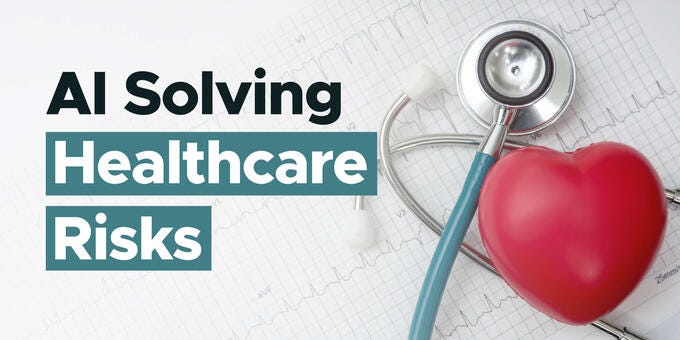
How AI is Reshaping Healthcare: ROI, Governance, and Trust
- Published
- Jun 10, 2025
- Topics
- Share
Artificial Intelligence (AI) integration is transforming the healthcare landscape, offering advancements in patient care, operational efficiency, and medical research.
This article explores insights and takeaways from MESH 2025 Innovation Bootcamp, including the potentially transformative role of AI in the future of medicine, how it’s addressing critical challenges, and highlighting pathways to successful adoption.
Key Takeaways
- Don’t just invest in AI; build clear business cases and plan for demonstrating financial returns.
- Without strong frameworks for evaluating, selecting, and monitoring AI tools, organizations risk “solution fatigue” and ineffective adoption.
- AI models are powerful but most effective when layered with human oversight and continuous feedback.
- Recognize and proactively plan for common challenges like privacy concerns, integration challenges, and regulatory landscapes to create a smoother transition to AI-driven care.
Considerations for AI Adoption in Healthcare
Successful AI integration in healthcare hinges on an understanding of several factors:
Quantifying AI’s ROI in Healthcare
A recurring challenge for healthcare systems is evaluating AI solutions through a business lens. Unlike other industries where ROI is typically measured over 3-5 years, healthcare organizations are often expected to demonstrate returns within 12 months.
This creates a unique challenge for predicting the total cost of ownership against AI's benefits and promise, especially as the quantification of performance metrics for AI solutions continues to evolve.
Strategic planning must bridge this gap, translating evolving performance metrics into clear financial advantages.
Governance is the Backbone of AI Integration
Successful AI adoption hinges on robust governance structures that guide healthcare organizations with model evaluation, selection, implementation, and use.
With a flood of AI tools entering the market, healthcare leaders face “solution fatigue.” Identifying solution applicability and fit must be vetted through the well-developed governance mechanisms and policies.
The “Swiss Cheese Model” of AI
AI models can be compared to Swiss cheese models: while they have flaws, they are effective when layered with human oversight. AI generative model outputs, even with an acceptance rate of 30%, can affect positive outcomes. High override rates by clinicians don’t equate to failures. Through structured feedback loops and closure, model validation and performance can be aligned for success.
Overcoming Adoption Hurdles
Despite AI's clear potential, privacy concerns, integration hurdles, and skepticism among leadership slow adoption. However, AI adoption is inevitable.
Recognizing the “headwinds” that healthcare organizations face (from financial to regulatory to interoperability to safety) is important for leadership to set the stage for adopting AI advancements.
Shaping the Future of AI in Healthcare
Insights from leading experts underscore the inevitability and importance of AI in healthcare. Thought leaders continue to emphasize the need for:
- Unlocking the future of personalized medicine in an equitable way
- Navigating digital health within an evolving technological landscape
- Building an AI-enabled future of medicine
- Developing comprehensive toolkits for AI and machine learning
- Leveraging AI as a “tool of thought” to enhance human capacity
- Acknowledging the peril of ignoring the AI revolution for both patients and providers
Implementing AI in Your Healthcare Organization
As AI continues to evolve, so must our strategies for adoption. At EisnerAmper, we’re committed to helping healthcare organizations navigate the complexities of AI integration. Our approach offers a comprehensive suite of solutions, from ROI analysis to governance, testing, and trust-building:
- AI Readiness Playbook: This resource helps organizations assess cost-benefit value using accurate proformas and projections.
- AI Governance Framework: Built on overlapping and multidisciplinary committees, it makes sure that every AI use case is evaluated, implemented, and monitored with input from clinicians, technical experts, and risk specialists using robust tools and guides.
- Model Testing and Transparency Playbooks: These playbooks emphasize rigorous evaluation, success metrics, and trust-building strategies.
Let’s work together to unlock the full potential of AI for your patients and providers. Contact us today to learn more and begin your AI journey.
What's on Your Mind?
Start a conversation with Arvind












